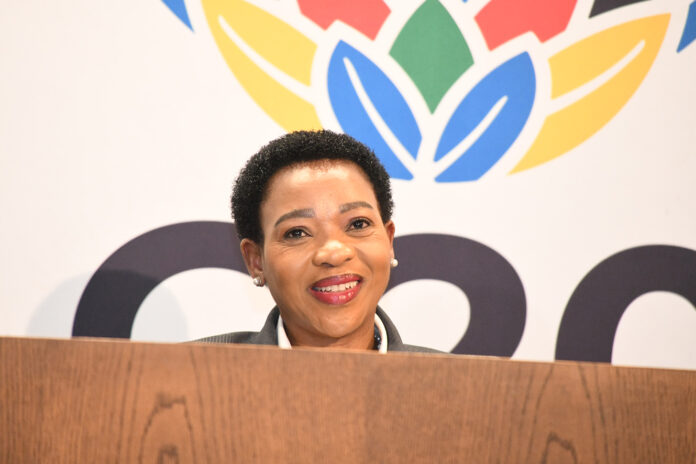On Thursday, Deputy Minister of Higher Education and Training Dr Nomusa Dube-Ncube, joined stakeholders at the University of Johannesburg (UJ) to celebrate the launch of the latest instalment of the Learning for Life Programme, spearheaded by multinational Diageo South Africa.
In a country grappling with a youth unemployment rate of 46.1%, the initiative identified the hospitality sector as a beacon of hope for many young South Africans. Yet, for thousands of students pursuing careers in this vibrant industry, the dream of graduation often hits a roadblock: the lack of funding for mandatory industry placements required to complete their qualifications.
Speaking at the launch, Dube-Ncube painted a sobering picture of the unemployment crisis in South Africa.
“Just two days ago, Statistics South Africa revealed that our economy shed 80 000 jobs in the second quarter of this year. That represents a 0.8% decline in employment, leaving only 10.51 million people formally employed.”
Behind these statistics are countless young people, particularly black women from disadvantaged communities, who face barriers to education and employment. But the deputy minister expressed hope.
“Today, we are not only acknowledging the challenge, but we are actively responding to it. The Learning for Life Programme is a shining example of what is possible when the public sector, private sector and academic institutions work hand in hand,” she said.
The programme directly addresses a critical gap in the education-to-employment pipeline: the inability of students to graduate due to the lack of industry placements required for practical training. This year’s cohort will see 100 students placed with reputable hotel and culinary establishments to complete their experiential training, a vital step toward graduation.
Andrew Ross, Diageo South Africa general manager, highlighted the importance of these placements. “A big reason for that success in South Africa is our growing partnership with the Youth Employment Service (YES) and the University of Johannesburg. Together, we’ve been able to not only train young people but also place them into structured, real-world work experiences, where they can grow, contribute, and build momentum in their careers,” he said.
Dube-Ncube lauded the programme as a model for systemic change in addressing youth unemployment. “Behind those numbers are faces of young men and women searching for work, parents struggling to feed families, and graduates who, despite their qualifications, remain without opportunity. These partnerships play a critical role in addressing the challenge of unemployment in this country.”
The programme’s impact extends beyond individual students. Gerald Hamadziripi, manager of business units at UJ, emphasised the value interns bring to the industry.
“Through this programme, interns not only gained critical workplace skills, but they have also contributed meaningfully to our operations, our culture, and our purpose. Many of them arrived eager but uncertain and left confident, capable and ready to take the next steps in their careers,” he said.
Dube-Ncube said: “It is not about producing waiters or front-line staff only; it is about producing chefs, creators, innovators, and entrepreneurs. It is about building careers, not just filling jobs.”
She said the programme equips students with practical skills and industry knowledge across tourism, hospitality, and food and beverage services, preparing them for meaningful employment. By connecting education to opportunity, talent to industry, and aspiration to achievement, the initiative is transforming the hospitality sector and contributing to economic inclusion.
She said Diageo South Africa, UJ, and YES have demonstrated the power of public-private partnerships in driving transformation. “By investing in young people, you are investing in South Africa’s future. You are proving that transformation is not a slogan but a lived reality.”
As Dube-Ncube concluded, “Rise, take the opportunity, and build not only your own lives but also the future of South Africa.”



